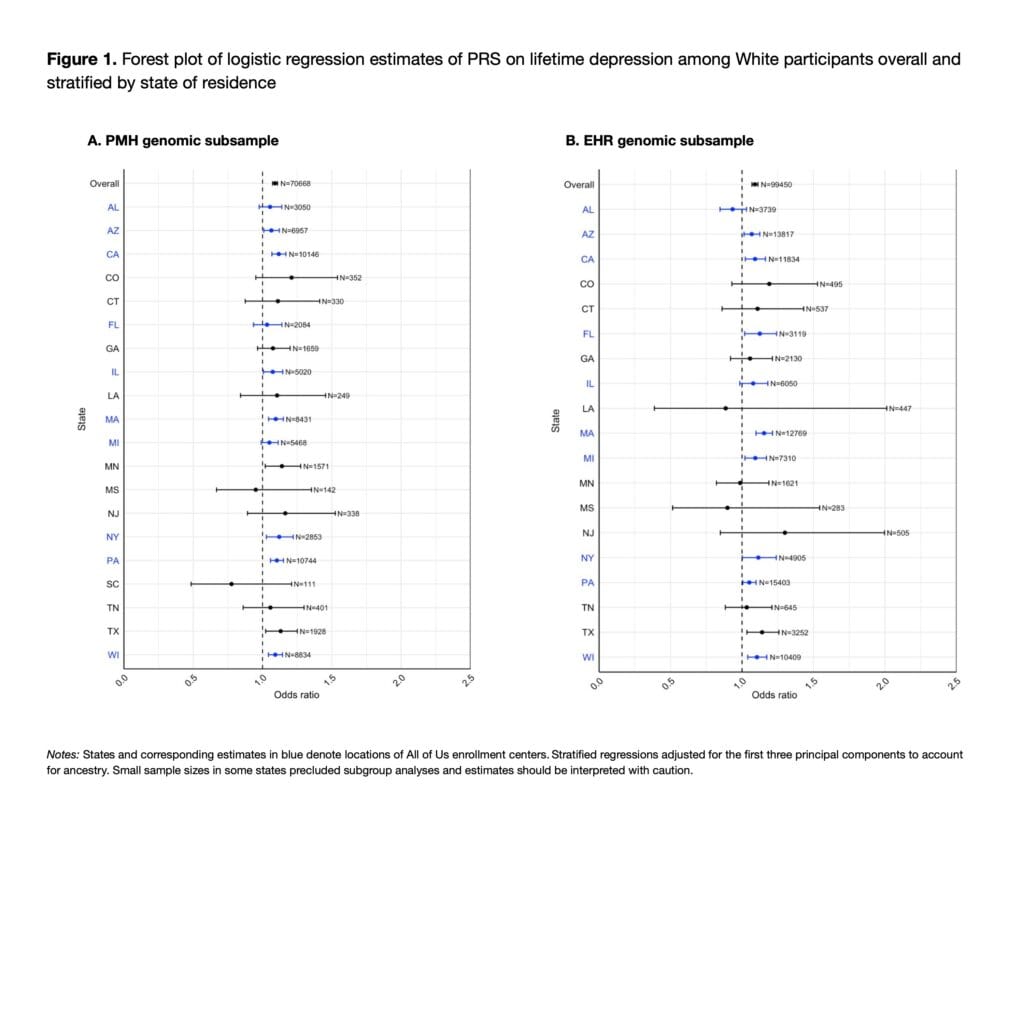Mental Health
Using large biobanks for psychiatric genomic research: investigating selection and generalizability through sample composition Catherine Gimbrone* Catherine Gimbrone Katherine Keyes Louisa Smith Philip Greenland Jordan W. Smoller Maria Argos
Introduction:
Large biobanks offer unprecedented data for psychiatric genomic research, but concerns exist about sample representativeness and generalizability. This study examined depression prevalence, correlates, and polygenic risk score (PRS) associations by U.S. state in the NIH All of Us Study data to assess potential impacts of non-representative sampling.
Methods:
Depression prevalence and correlates were analyzed in two All of Us Study subsamples: those with self-reported personal medical history (PMH) data (n=162,718) and those with electronic health record (EHR) data (n=270,902). Associations between PRS and lifetime depression were examined by race/ethnicity and U.S. state of residence in genomic subsamples.
Results:
Depression prevalence varied across states in both PMH (16.62-33.24%) and EHR (0.21-41.83%) data. Younger age and lower educational attainment were associated with lifetime depression based on self-reported medical history (PMH); whereas, older age and higher educational attainment were associated with lifetime depression diagnosis (EHR). Among non-Hispanic whites, the depression PRS was associated with lifetime depression based on PMH (OR=1.09, 95% C.I. 1.07-1.11) and EHR (OR=1.09, 1.07-1.11). Results were generally consistent for other self-reported racial/ethnic groups. Associations between PRS and lifetime depression were largely consistent and varied minimally (ORs: 0.78 – 1.30) by state of residence in both datasets.
Discussion:
There is substantial variation in lifetime depression prevalence across states in All of Us, likely reflecting recruitment differences, EHR data completeness, and true geographic variation, yet PRS associations remained relatively stable. As studies with data like All of Us expand, accounting for sample composition and measurement approaches will be crucial for generating actionable findings.

